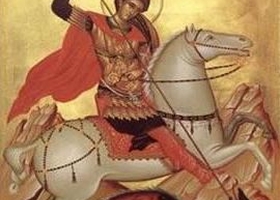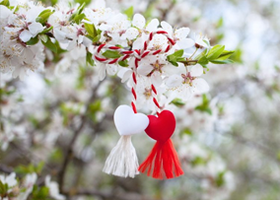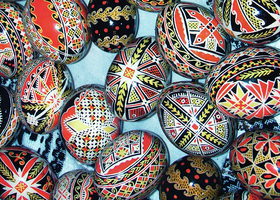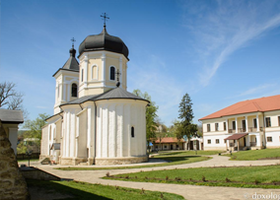Christmas
Christmas (the Nativity in the new style) is the most important Christian holiday of the winter, but before that, Christmas Eve (24 December) is celebrated. On the morning of this day (in some areas the evening before), troupes of children go from house to house carolling.
For the carols, sung in the night, by doors and windows, children receive bagels, cakes, apples, nuts and all sorts of other gifts. In addition to the children's choirs, there are also priests, who go from house to house with icons in their arms, to sprinkle the people's homes with holy water and announce the "Birth of Jesus Christ" in song.
On Christmas Eve, the tree is decorated and gifts are prepared to be brought by Santa Claus. He "will enter the chimney with his bag full of presents". Carols resound throughout the country until Christmas Day (25 December). Whether religious or secular, carols create an atmosphere full of spirit and mystery as well as joy and good cheer. Children in small groups walk with the Star - a symbol of the star that guided the "Three Wise Men from the East" in their search for the baby Jesus.
Then comes practically the most awaited winter holiday - the New Year (31 December - 1 January, St. Basil's Day). Researchers see the folk customs that take place during this period as rituals of symbolic renewal of the world, of casting out evil spirits or of divination. A complex of ceremonies and superstitions make this time of year one of the richest in folk customs, a period of transition between two cycles of vegetation or work, the threshold of which is the New Year.
Just as Christmas is dominated by carols, the New Year is marked by "chants" of wishing well, performed through various folk rituals: the Ploughman, the Tree Branch, the Owl, the Vasilca, mime games with animal masks (Goat, Bear, Horse, Ram, Stag, Rooster), or peasant characters. There are also carols, but these now have a different role, to herald the new year. They are customs that are still preserved, perhaps because of their spectacular nature, but also because of the opportunity to celebrate.
The marriage of celebrations, but especially of parties, is New Year's Eve, a secular holiday, full of rich meals, parties and great entertainment. The next day, children with beautifully adorned tree branches go about sowing: "May you live/ to blossom/ like apples, / like pears, / in the midst of summer, / like the rich autumn / of all abundance! Happy New Year and Many More!".
Then follows Old Style Christmas (7 January). Before Christmas there is a fasting that lasts 6 weeks. The Christmas table is filled with buns, sausages, piftia (frozen rooster, chicken or pork broth), pork sausages and red wine, and there is also the mamaliga (a traditional polenta meal) . Bands of boys go carolling.


 ro
ro
 ru
ru



